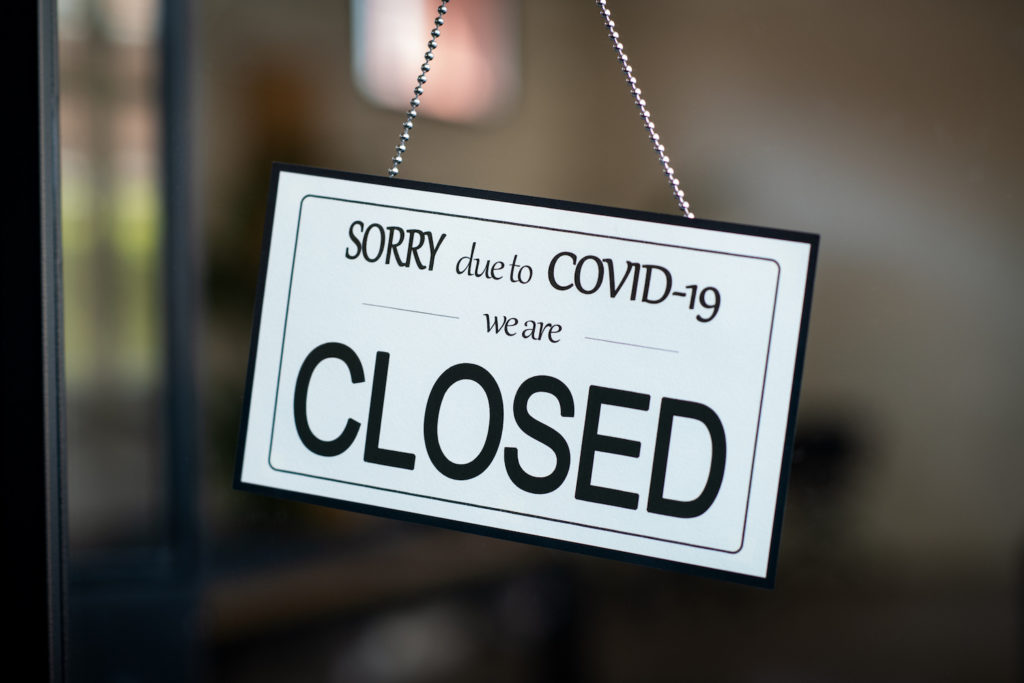We all sat there on Sunday evening, anxiously waiting to hear the news from the Prime Minster about a potential easing in lockdown restrictions. When the announcement came, many were left confused.
“If you can’t work from home, go back to work” was a statement that left many employees and business owners confused as to what the next few weeks means for them.
At Everymind at Work, we’re not claiming to have all the answers… But we wanted to share a post with you to hopefully ease some anxiety around what the next few weeks might mean for you and your business.
Should You Go Back To Work?
On the Sunday evening broadcast, Boris Johnson advised people who were “unable to work from home” to go back to work on Monday morning, highlighting the construction and manufacturing industry in particular. He also highlighted the need to avoid public transport at all costs, getting to work by private transport or by walking/cycling.
But with less than 12 hours notice to potentially go back to work after such a long period off, the anxiety of many employees across social media was clear to see. But in a recent announcement made by Dominic Raab, the Government are now not urging workers to return until Wednesday 13th May.
He continued: ‘There will be guidance out. We have been working with employers to make sure it can be done in a safe way.’
Without this guidance being made public, it’s hard as an employee (and an employer) to know whether to start transitioning back to a normal way of working. But the general consensus is to hold off until Wednesday, until further announcements have been made.
What To Do If Your An Employer

If you’re an employer debating when to re-open your workplace, our advice would be to stay in touch with the guidelines being presented as we transition throughout the phases.
It’s clear that businesses want to return to normal as quickly as possible, considering the financial implications many are facing during this lockdown, but rushing back could certainly come with more complications later on.
The Government will soon announce guidelines for employers to make sure they’re ‘Covid Secure’ but these regulations will certainly differ per industry. However, the common and crucial denominator is that people feel safe, secure and protected whilst being at work.
There will be an extensive list that will be provided. and adapted according to sector, but below are some of the key points and regulations according to reports specifically for the office environment:
- Staggered shift/start times
- One way systems
- Specific exit and entry points
- No sharing of equipment
- No ‘hot desking’ – allocated seats only
- PPE and Protective Screens
- Social Distancing
- Hygiene Stations
- People sitting next to each other rather than opposite one another (to reduce air contamination)
- Employees to continue to work from home wherever possible
When we were supporting businesses with transitioning to a work from home model, we spoke about the importance of listening to help the transition be as smooth as possible. Well that advice is now more crucial than ever. It’s important to listen to the guidelines, listen to fellow business owners/employers within your industry, listen to stakeholders and also listen to employees.
What To Do If Your An Employee

Once again, every situation is different so it’s hard for anyone to advise concrete advice for everyone to adhere too. But as an employee, there’s a lot of unanswered questions which is causing anxiety, panic and fear.
As an employee, the general advice is:
- To work from home, when possible.
- To only return to work if your job cannot be done from home.
- If returning to work, avoid public transport when travelling.
- To adhere to the guidelines put in place by your employer.
This advice is very broad, which of course leads to confusion as everyones situation is different. But as an employee, it’s important to have an open conversation with your line manager/employer to hear the guidelines they’re putting in place. It’s also important to have an open conversation about your situation, and how that could affect you going back to work.
It’s of course going to be a difficult conversation to have, but staying safe still remains the underlying message to all guidance being presented so highlighting your personal concerns with your employer should be done as early as possible.
It’s a confusing time, with a lot of unanswered questions still, but you’ve adapted to the current situation and you’ll be able to adapt back too. As we’ve continued to say, it’s important to be kind to others during this pandemic but it’s also extremely important to be kind to yourself…
The Phased Approach To Returning Back To Work
There’s a lot more information circulating around the phased approach to returning back to work, with some industries having to stay locked down for longer than others. If all goes to plan, we could see the following:
Phase 1 (May)
• Outdoor workers like builders and gardeners will be able to return to work.
• If instructed by their employers, workers that are unable to work from home (typically within the construction and manufacturing industry) will return to work when safe.
• Advice to avoid public transport to get to and from work will continue, with an emphasis on getting to and from work by your own personal transport/cycling/walking.
• It will also be possible to meet up to four friends and family from other households outdoors while maintaining strict social distancing.
• Golf courses, Tennis courts and other outdoor activities that permit social distancing will open from Wednesday 13th May.
Phase 2 (Early June)
• Workers that can maintain a two-metre distance from colleagues constantly will be allowed to return to work
• Remote working will be maintained for all those who can do so
• Small retail outlets with small number of staff will be allowed reopen on the basis that the retailer can control the number of individuals that staff and customers interact with at any one time.
• Up to four people will be allowed to visit other households for a short period while maintaining social distancing.
Phase 3 (Late June)
• Organisations where employees have low levels of daily interaction with people and where social distancing can be maintained will be allowed reopen
• Phase in the opening of all other non-essential retail outlets on basis of restriction on the number of staff and customers per square metre so that social distancing can be maintained
• Open cafes and restaurants providing on-premises food and drink where they can comply with social distancing measures and strict cleaning in operation
Phase 4 (Mid July)
• Commence loosening restrictions on higher-risk services like hairdressers and barbers that involve direct physical contact for periods of time between people and for which there is a population-wide demand
• Re-opening of creches childminders and preschools for children of all other workers on a gradually increasing phased basis (for example one day per week) and slowly increasing thereafter
• Organisations where employees cannot remote work to be considered first for return to onsite working arrangements
• It is suggested that staggered hours should be operated to increase the number of workers available for work in any 24- hour period, as long as they can limit the number of workers interacting with each other
• Re-opening of hotels, hostels, caravan parks, holiday parks for social and tourist activities initially on a limited occupancy basis (or number of people per square metre) and then increasing overtime (and where social distancing is complied with). Hotel bars will remain closed
Phase 5 (Mid August)
• This stage will see the lifting of almost all restrictions. However, “large social gatherings” such as large weddings will continue to be restricted due to risk
Moving Forward…
It’s important to keep listening to guidelines presented by the Government throughout this time, and also to continue listening to those around you. Even though it’s not concrete, having this phased approach now gives us something to work towards and potentially can help many with the uncertainty they’re facing.
Finally, it’s important to prioritise your mental health during this time. To proactively take advantage of the extended time we’re now allowed to exercise, to focus on self care and to stay connected with family and loved ones.
Equally, stay connected with your employees during this time to keep them informed on the decisions you’re making as a business.









